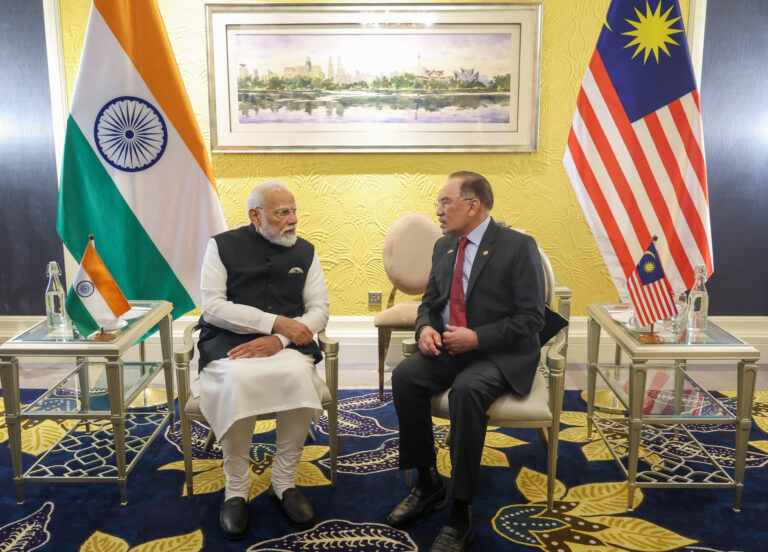
Geneva: The currently fragile food security situation is one dimension of a global food, energy, and financial crisis affecting every region of the world. The humanitarian assistance system, already overstretched by ongoing conflicts and climate-related disasters, is facing even greater demands in 2023. Financial support, while increasing, has not kept pace with the needs.
A new report titled “Rising Global Food Insecurity: Assessing Policy Responses”, urges the G20 to coordinate efforts on tackling the root causes of food insecurity.
The report issued by the World Trade Organization (WTO), the Food and Agriculture Organization (FAO) of the United Nations and the World Bank Group (WBG) on April 13, 2023, was produced at the request of G20 leaders at their G20 Bali Declaration of November 2022. The leaders had then asked the FAO and WBG to undertake a mapping exercise on the global response to rising food insecurity, identify any gaps in this response, and recommend further actions to eradicate hunger.
The report recommends focusing on improving the supply of development finance to support agriculture investments and to promote sustainable and inclusive economic growth in rural areas. It notes that the consequences of soaring inflation and mounting debt burdens are spreading the food security crisis well beyond those countries that have been suffering from acute food insecurity for successive years. Countries that were on a positive path to achieving the food security and nutrition targets of the Sustainable Development Goals (SDGs) are seeing poverty levels rise, while their ability to provide assistance to their populations is undermined by increasing debt, falling revenues, and depreciating currencies.
The main drivers of food crises – lack of adequate investments in agrifood systems and rural areas, research and development, direct impacts from conflict and insecurity, extreme climatic events, and economic slowdowns and downturns – are all expected to persist in 2023 and beyond. According to the report, a return of global economic growth will ease the crisis, but it is not sufficient either to alleviate the current suffering or to prevent future shocks from piling additional pain on vulnerable populations. Much more needs to be done to address the root causes of hunger, food insecurity and malnutrition and to make safe, healthy diets more affordable for all.
The report emphasises the need for a unified approach and suggests that the G20 is in a unique position to facilitate collective action by moving beyond a sector-specific discussion of food security and considering how the development finance architecture can be improved to support investments that will address the underlying causes of food insecurity, promote sustainable and inclusive economic growth in rural areas and reduce the potential for financial stress to lead to increased hunger and food insecurity.
“The current multi-dimensional crisis underscores the potential for global macroeconomic conditions to undermine food security and nutrition goals and the need for a swift and coordinated global financial and policy response,” it states.
The global community, including the G20, has responded to the current crisis with humanitarian assistance, new initiatives and political commitments. The global response prioritized keeping food supply chains functioning, avoiding export restrictions, re-opening Black Sea trade routes, strengthening social safety nets, and continuing to invest in building sustainable food systems. Progress has been made on all these fronts, but any additional supply shocks could turn the current food access crisis into an availability one.
The report has made the following recommendations:
- Emergency humanitarian assistance: Funding must keep pace with the needs. More funds are needed for emergency food and livelihood operations and for other emergency measures that preserve livelihoods and reduce future short-term needs.
- Social safety net programmes: An integrated, people-centred policy approach is needed, which must include food-related policies. The countries with the greatest need have the fewest resources and the smallest capacity to protect vulnerable households. Social safety net programmes need to be improved and expanded to contribute towards the realization of the right to food, facilitate access to food for the poor and vulnerable, alleviate hardship and promote well-being.
- Increasing resilience: Key to building the shock-absorptive capacity of an agrifood system is diversity in food sources, diversity in actors in food supply chains, including small and medium agrifood enterprises, efficient transport networks, effective early warning systems, early action plans and social protection, and affordability of a healthy diet for all households, particularly the poorest and most vulnerable.
- Fertilizer: Urgent action is needed to facilitate access to fertilizers for farmers in vulnerable areas, while also increasing investment in long-term solutions. Efforts must also be deployed to improve fertilizer use efficiency, for instance by investing in and using soil nutrient maps, and reducing dependency on mineral fertilizers. The Africa Fertilizer and Soil Health Summit will be key to setting priority actions for the continent, and its outcomes should be supported with concrete actions.
- Finance: Countries need to be provided with fiscal space to protect their populations from the impacts of soaring food price inflation. Donor funding, concessional loans, and emergency relief through the IMF Food Shock Window are critical. A broader food import financing facility, such as that proposed by FAO, which will expand the IMF Food Shock Window, will ease the immediate food import financing burden of vulnerable countries and help them mitigate long-lasting impacts on their agrifood systems, reducing future needs for emergency assistance. While recommendations on debt relief and restructuring are beyond the scope of this report, there is no question that such actions would provide more fiscal space to offset the impact of elevated food, fuel and fertilizer prices on poor households.
– global bihari bureau





